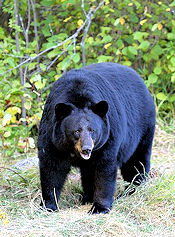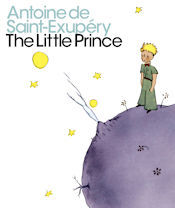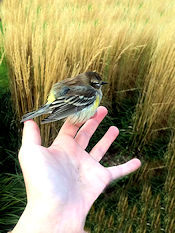The Enigma of Mara
Dedicated to Jood

Carlos Fuentes was a man in search of meaning where there was none. He had been a successful university professor loved by both his colleagues and students. But now, in the quietude of retirement, none of his accomplishments mattered anymore. The world outside seemed increasingly distant and irrelevant. Purpose had slipped through his fingers like sand, and he became more and more reclusive with each passing year. His only friends were Lucía his housekeeper and Oluso whom you will hear about later.
Carlos and Lucía lived in a lovely house in Salida, Colorado, nestled within a pine forest. Lucía tended to the house with quiet diligence. Her husband’s death nine years ago lingered like a shadow, and her grown children’s visits were infrequent, their lives now entwined with their own offspring.
Carlos spent most of his time walking through the pine forest adjacent to his property. It was the only place that brought him any solace. His daily walks were not mere exercise; they were meditations. He followed the winding trail, lost in thought while listening to songbirds and chattering squirrels.
He encountered fellow wanderers—an elusive fox, a doe, and a solitary owl perched on a moss-covered branch. They became his companions, their silent company more comforting than any lecture hall or campus symposium. It was here, in the embrace of nature, that he pondered the mysteries of existence and his own demise. His was a life well-lived, even in solitude.
One morning, Carlos decided to walk to town. As he approached the town square, a scene unfolded—a protest over some perceived injustice, a cacophony of voices, and fervent faces. Fifty or so young people, their anger palpable, demanded to be heard, their signs thrust toward the sky like desperate prayers.

The protest turned violent as store windows were smashed and fires were started. As the police arrived, a beautiful young woman ran from the other protesters over to Carlos and clutched him while trembling with fear. He instinctively put his arm around her to protect her. As the police were arresting the protesters, he asked her what her name was.
She said, "The Others call me Mara."
"How old are you Mara?" Carlos asked.
She said, "Very old."
Carlos thought that was a strange answer. After the street was cleared, she still clung to him. He told her she should go home. She said she had no home. She said she had been living with some of the people who were bound and taken away.
Carlos became uneasy with her insistence upon staying with him. He also thought she might be street savvy and just wanted to take advantage of him. Nonetheless, he agreed to let her come home with him at least until she had settled down. On the way home he asked her where she came from and who her parents were.
She said, "I do not know," to his questions.
He questioned her further, but she provided no information about herself other than what she had initially offered.
Carlos frowned. Mara's eyes held secrets, and her presence defied reason. Why cling to him? Why seek refuge in a stranger’s embrace?
Carlos led her away. The streets emptied, and silence settled like dust. Mara’s gaze remained fixed on him, her eyes pools of mystery. He wondered if she was streetwise, a survivor who saw vulnerability in an old man. Yet, compassion tugged at his heart, and he invited her into his home—a temporary haven for a lost soul.
The house absorbed Mara's presence. She sat by the window, tracing patterns on the glass. Carlos probed gently, again seeking answers, but all of her replies were “I do not know.”
He thought to himself, "She's likely hiding something from me."
As night fell, Mara remained, her presence both unsettling and comforting. In the quiet hours, as Lucía slept, Carlos sat by the fire, Mara at his side, as the flames cast shadows on the walls. He leaned closer, whispering, “Tell me the truth, Mara.”
And so, in the house in the forest, reality blurred, and the enigma of Mara unfolded.
The following days with Mara were a disorienting mix of the mundane and the bizarre. She would not leave the house without Carlos, and she spent most of her time staring out at the mountains beyond their window. Her gaze held an intensity that unnerved Carlos. He'd catch her muttering to herself in a singsong language he couldn't recognize, a language that seemed to shimmer and shift, defying definition.
"What are you saying, Mara?" he'd ask, his voice cutting through the strange silence.
"Nothing," she replied, a vacant look in her eyes. "Just... remembering."
The next morning Carlos and Mara sat outside on the patio. Lucía brought out a steaming pot of yerba mate and cups. As they were sipping their tea, Lucía stared intently at Mara, looking particularly at her face and hands. Finally she spoke to Carlos in Spanish so that their conversation would be private.
"Carlos," she said, "When I prepare food for Mara, she will not eat it. She tells me she does not need food. She looks perfect. Her beautiful hair shows no imperfections, her complexion lacks any blemishes, her sclera are pure white with no redness or tiny blood vessels like we have, and her fingernails and cuticles are perfect. I don't think she is human."
Carlos, a staunch believer in Occam's Razor, could only nod in agreement.

All of a sudden there was rustling among the trees nearest to them. Out walked a huge black bear. Mara screamed and recoiled in terror. Carlos went over to her, put his arm around her and said, "Don't be afraid. He will not harm you. He has been my friend for many years. His name is Oluso. He is our guardian."
"What is that thing?" Mara shouted in disbelief.
"A bear of course," replied Carlos.
Then Carlos went out to greet Oluso. As they always did, Oluso reared up on his hind legs, put his forelegs into the air and let out a mighty roar. Carlos came up to him, held his arms into the air and roared as best he could. Then they embraced. Carlos put his arms around Oluso's neck and Oluso hugged Carlos with his massive arms. They walked back to the patio.
Lucía was already in the kitchen preparing Oluso's breakfast. Out she came and placed a large metal pan on the ground. It was filled with raw fish, carrots, blackberries, pine nuts, broccoli and kibble. After he had finished his meal, Lucía took a jar of honey and poured a generous amount into his pan. Oluso licked it up with relish. Then he went over to a shady spot and lay down for a nap.
Carlos told Mara he wanted her to introduce herself to Oluso so he would know that she was a friend. He took her hand and she reluctantly followed him to the spot where Oluso was napping.
"Put your hand down to his face," said Carlos.
Mara did so. Oluso looked up at her, sniffed her hand and then licked it. The bond was made.
That evening Carlos decided to give his old friend Wilfred a call. They were colleagues during their years in academia. Since he was a psychiatrist, albeit retired, Carlos thought he might be able to give some fresh perspective about this strange young woman.
After catching up on each others retirement years, Carlos shared with Wilfred his involvement with Mara and emphasized her inability or unwillingness to provide any information about her past and some of her odd behavior. Wilfred was intrigued and curious about why Carlos had let Mara into his life. Carlos refocused the conversation on Mara's possible psychological pathology.
Wilfred hedged about her as any good practitioner would. He said, "Well, there are multiple possibilities, but I can't conclude anything about her with so little information. Usually a client has a spouse, a parent, or a friend who can narrow things down. If she's conning you, she likely will trip up at some point. On the other hand, if she is suffering from amnesia, its probably dissociative in nature; it could even be dissociative fugue, but that's quite rare. And if she had a head injury, that could account for long-term memory problems."
Carlos replied, "Well, you've told me what I should already have known. I'll get back to you if I can solve this mystery. We should get together sometime soon. Too many years have slipped by."
A few days later, after seeing Mara again staring out the window, Carlos thought he could give her something more meaningful to do. He said, "Mara, can you read?"
She replied, "What is read?"
Carlos took it upon himself to acquaint her with reading and the world of literature. He took a small book from his bookshelf and said to her, "Sit with me."

She sat down on the sofa next to him as he opened up The Little Prince by Antoine De Saint-Exupéry. After reading each page, he paused so Mara could look at the illustrations.
When he was done, Mara said, "More."
Carlos got up and took out Where the Wild Things Are by Maurice Sendak. He sat back down next to Mara and carefully read each page to her. When he was finished, she took the book from him and slowly looked at all of the illustrations.
She smiled at Carlos and said, "More."
Once again he took out another book. This time it was A Wrinkle in Time (Madeleine L'Engle). This book took much more time to read. But Mara's attention to it was unwavering, and she seemed particularly intrigued by the story.
"More read!" She shouted.
Carlos replied, "That's enough reading for today. I will read more books with you tomorrow. We will have lots of time to read books and do other fun things. Let's go for a walk in the woods tomorrow."
The next morning, after Carlos finished his breakfast, he invited Mara to join him for a walk. She took the lead on the only trail through the woods. Carlos had walked it many times and knew it by heart. To him it was old and familiar, but today it seemed new and eventful.

After about half an hour of walking, Mara stopped and looked at something by the side of the trail. It was a small, dead bird. She picked it up and cradled it in her hands. Looking at Carlos, she asked, "What is this?"
Carlos replied, "It is called a bird. Living birds can use their wings to fly in the air, but this bird is dead and cannot fly."
"What is dead?" Mara asked.
Carlos paused for awhile and then said, "Dead means the bird's body stopped working and it can no longer eat, sleep, breathe, or fly."
Mara looked at the bird and shouted, "Bird! Fly!" Nothing happened.
She again shouted even louder, "Bird! Fly!" The bird's body began twitching. Then it got up on its feet and chirped. Mara chirped back at it. Finally, it fluttered its wings and flew up into a tree. Mara smiled.
After having watched this, Carlos said to himself that he should not be surprised by the amazing things Mara could do, but this was extraordinary. He could only shake his head.
Carlos and Mara walked back to the house where Lucía was knitting at the patio table. Carlos told her what had happened. She put down her knitting, clasped her hands together as if praying, and said, Dios mío! Dios mío! (My god! My god!) What is this creature that lives in our house?"
Several days later, after reading several more books with Mara, Carlos decided to try something new with her. He asked her to come to the dining room table with him and to sit down. He went into the living room closet and took out a 400-piece jigsaw puzzle depicting flowers in a garden. He carefully arranged the puzzle pieces the right side up on the table and left the picture on the box that showed how the puzzle would look when completed.
Mara looked at him quizzically.
"Why?" asked Mara.
"For fun," said Carlos. "Put the pieces together so they look like the picture on the box. Go ahead. Try it."
Mara looked at the puzzle pieces intently. Then she looked at the picture on the box. She again looked at the puzzle pieces. Finally, she started. Her eyes darted back and forth, and her hands were a blur as she rapidly put the puzzle together. She was done in just a few minutes.
"Fun is over," she said.
Carlos stared in disbelief. "How did you do that!" he exclaimed.
Mara just smiled.
With each passing day, Lucía and Carlos became more and more fond of Mara and accepted her many quirks as just part of who she was. They adjusted their daily routines in order to spend time with her and introduce her to new and enjoyable things to do. After several months with them she seemed content, although it was difficult to know how she really felt about anything.
One lazy afternoon, Carlos was reading a book on the patio. Mara was sitting by his side and staring out into space as usual. She heard a sound and turned to see Oluso coming out of the trees. She jumped out of her chair and ran over to meet him before Carlos even knew what was happening. Oluso got up on his hind legs and let our a mighty roar. Then Mara raised her arms to the sky and let out a roar so loud and intense it echoed down into the valley next to the woods. Then Oluso and Mara embraced and walked back to the patio.
Lucía was in the kitchen. Mara ran in and told her to prepare Oluso's meal. Once that was done Mara grabbed the pan of food from Lucía and carried it outside where she fed Oluso. She had a look of satisfaction on her face. Once again Carlos was amazed by her behavior and wondered how such a roar could have come from such a petite young woman. Then he caught himself—she was not what she appeared to be.
After one of many walks in the woods with Carlos, Mara stopped before entering the house. She looked at him and said, "I am very tired. I will sleep now." She then went into the house, walked into her room and lay down on the bed.
The next afternoon Lucía said to Carlos, "Mara is still sleeping. This is not normal. Should I wake her up?"
Carlos replied, "No, she is not like us. Let her be."
After sleeping for three days and nights, Mara woke up. She went outside to the patio where Lucía and Carlos were enjoying their morning coffee. She remained standing. Her appearance had changed dramatically. She no longer was a beautiful young woman. She looked very old and frail. Her hair was gray, and her sagging skin was ashen.
She looked at them with a strange tenderness. She said, "My time here is over. Now, I must return."
Carlos and Lucía were surprised. "Where will you go?" He asked. "Back to town?"
"No," said Mara. "I will return to the Others. I have used this form to interact and to understand. In the town I have learned about avarice, hatred, divisiveness, complexity and chaos. In your home I have learned about simplicity, compassion, acceptance, trust, language on paper within books, puzzles, black bears and birds. Now I will share what I have learned with the Others.
Carlos said, "Please, don't leave so soon. I still have so many questions. You could teach us so much. Who are these "Others"? Where do they live? What do they know?"
She said, "The knowledge you seek will unfold in due time. Now is not that time."
Suddenly there was a lightning strike a few feet from where Mara was standing. The air was filled with electricity and the smell of ozone. An intense white light enveloped all of them. Then a vertical rift in the fabric of spacetime developed like the parting of two curtains. The air around it crackled, and there were strange energy discharges and gravitational distortions. A portal between dimensions had formed.

And there, stepping through the rift, was a human-like being of constantly changing shape and color. It took several steps on the ground, its movements fluid and graceful. It surveyed the surroundings with an air of curiosity. Time itself felt distorted, moments stretching and compressing as the being took its first steps in this new world. It opened its mouth and let out a series of melodic trills and chirps. Mara responded in kind.
The being extended its hand to Mara. With a final, lingering look at Carlos and Lucía, she took the Other's hand and became like it—glowing and constantly changing her shape and color. The two of them stepped through the rift, which shimmered, contracted, and with a soft pop, vanished. She was gone. The intense light dissipated, and the evening was normal again. Lucía and Carlos were dumbfound and unable to speak or move. Finally they stirred and looked at each other finding no words to speak. The only sounds were the wind in the trees and crickets chirping in the meadow.
